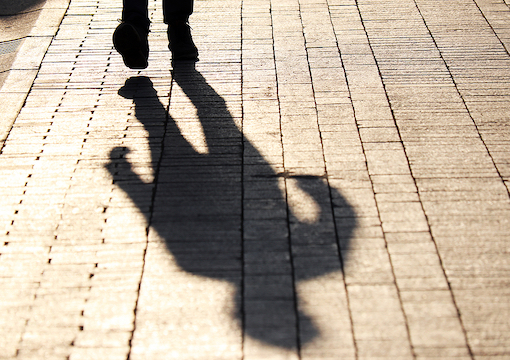
July 30, 2020

Source: Bigstock
“Karen” and “Becky” are two neologisms with opposite meanings for the enjoyable life. Here’s your field guide.
Karen: a person, often a white woman, who feels entitled to lecture perfect strangers about their behavior.
Synonyms: “Co-op Board President”; “Hillary Clinton”; “Portland ‘Moms'”
Becky: a white woman who calls the police on a suspicious black male.
Synonyms: “Still alive”; “Breathing”
Karens used to be known as “bossy,” but then Sheryl Sandberg said “bossy” was patriarchal, misogynistic and sexist, so a new word had to be invented to describe the exact same conduct.
— A Karen will walk across the street to tell you you’re in a non-smoking area.
— She’s the person who harangues strangers (not customers) on mask-wearing — pro or con.
— She’s the Harvard Asian who made a TikTok video lecturing white people on their racism and threatening, “Ima stab you!”
The public has been crying out for a word like “Karen” ever since “bossy” was cruelly taken away from us.
I’m more interested in the Becky.
As a huge fan of Me Not Being Killed, I can’t help but notice that the Becky concept runs counter to all received wisdom on how to avoid becoming a crime statistic. The central lesson, for example, of Gavin De Becker’s smash, featured-on-“Oprah” bestselling book, “The Gift of Fear and Survival Signals That Protect Us from Violence” is: Trust your gut.
On the very first page, De Becker writes:
“I’ve learned some lessons about safety through years of asking people who have suffered violence, ‘Could you have seen this coming?’ Most often they say, ‘No, it just came out of nowhere.’ But if I am quiet, if I wait a moment, here comes the information: ‘I felt uneasy when I first met that guy …’ or ‘Now that I think of it, I was suspicious when he approached me.'”
Women in particular, he says, are at a disadvantage because of their desire not to appear “rude.”
True, women’s gut feelings may be oversensitive to black men. We’ll get to that later. Now we’re talking about how to avoid being a victim of violence. And it’s survival of the Beckiest.
All strange men ought to set off some level of alarm bell in women, who are substantially weaker than men, have vastly less testosterone, and therefore should not be cops or soldiers. If a woman is wrong about a white guy — no harm, no foul. (In fact, the man would probably still be blamed.) If she’s wrong and it’s a black guy, heaven help her! She’s a Becky. Her life will be ruined.
Whenever I hear about Beckys, I’m reminded of the rape-torture of a 23-year-old Columbia University graduate student in 2007. Returning to her apartment building around 10 o’clock one night, she rode in the elevator with an unfamiliar black man, who had been living on the street. He got off on her floor, followed her down the hallway, then asked her a question about where someone lived, just as she was entering her apartment.
She stopped — according to the prosecutor, to be “kind” — and began to answer his question. Wouldn’t want to be a Becky!
Over the next 19 hours, Robert A. Williams raped and tortured the woman, tying her to the bed, cutting off her hair, slitting her eyelids with scissors, throwing boiling water over her face and chest, pouring bleach into her eyes, forcing her to swallow handfuls of ibuprofen, gluing her mouth shut and ordering her to gouge out her eyes with scissors, among other monstrosities.
Finally, at 4 p.m. the next day, Williams bound the unconscious woman to her bed with computer cables, set her apartment on fire and left. Awakened by the smoke, she used the fire to burn through her restraints and escaped — which is the only reason we know how a homeless guy got into a graduate student’s apartment.
The dead can’t talk — usually. But there’s this story from the Atlanta Journal Constitution.
In 2009, Jeanne Calle, a recently retired researcher at the American Cancer Society in Atlanta, overheard a young African American man, Shamal Thompson, inquiring about apartments for sale in her high-end condo building, the Aqua. As she passed Thompson in the lobby, she mentioned that hers was for sale, too.
A short while later, Calle got a call from the front desk, saying Thompson would like to come up and see it — and asking her if she wanted a security guard to escort him.
“No, it’ll be fine,” Calle replied. “I don’t want him to think that we don’t trust him.” Of course not. That would be “racist.”
Perhaps the security guard would not have asked the question had the man been white. But if he’d been white, you can be damn sure Calle wouldn’t have worried about appearing to “trust” him.
Thirty minutes later, Calle was dead. Thompson had slammed her head onto the kitchen’s granite countertop, fracturing her skull, then dragged her lifeless body into the pantry, and stole her diamond engagement ring, credit cards and money.
No one discounts the humiliation young black men experience when they are eyed with fear and suspicion, when women cling to their purses around them, when the police are called on them for doing normal things that would not raise alarms if they were older white women — or older black women, for that matter.
I believe the subject of this particular pain and suffering has been pretty well aired out over the past few years. Oh well. We all have our crosses to bear.
But to quote the revered feminist Margaret Atwood: “Men are afraid that women will laugh at them. Women are afraid that men will kill them.”
You can be a Becky and risk being wrong, leading to your humiliation, firing and social banishment. Or you can refuse to be a Becky and risk being dead.